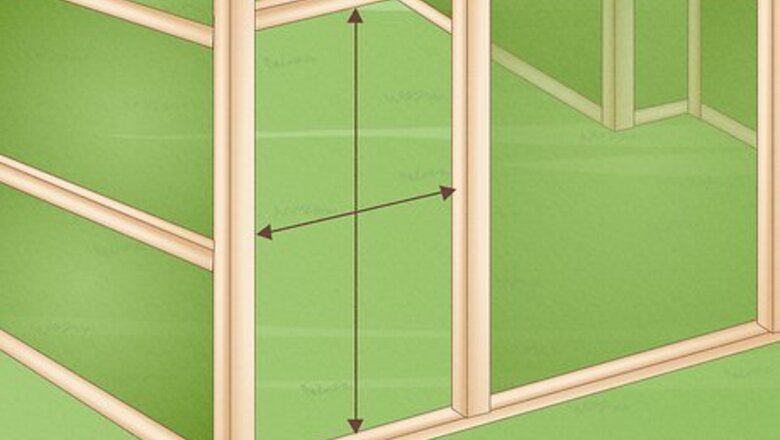
views
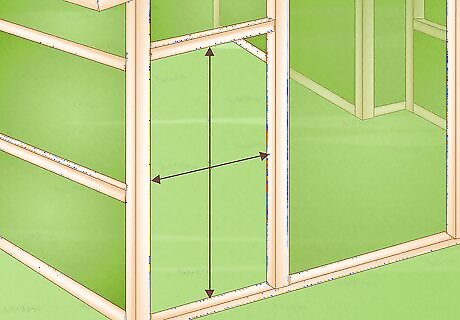
Figure out the size of the opening where you want to place the door. If you have a standard height top plate in the wall in which you are framing the door, you can build it 6 foot 8 inches or 7 foot tall (2.07 meters or 2.13 meters), the same height as standard doors. For custom sizes, you will have to work out the size you require for yourself by taking accurate measurements.
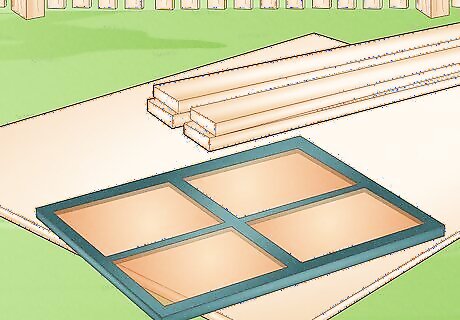
Locate the materials you will use for the door. The door that you see in this article's illustrations utilized an old window from a salvage yard; the frame was sized to fit the window and a frame was built to accommodate the door. For the project here, 2X4 (38 x 89 mm) treated southern yellow pine boards and half inch plywood (also treated) were used as well.
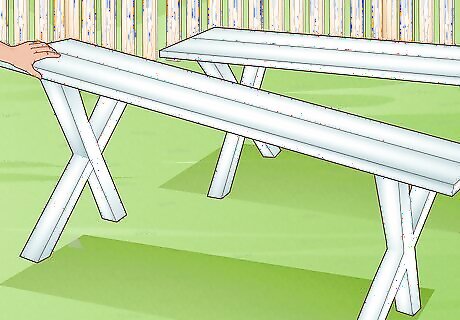
Set up a good, level set of saw horses for a work table. You will need to make sure it is level and sturdy so that the door will fit together correctly.
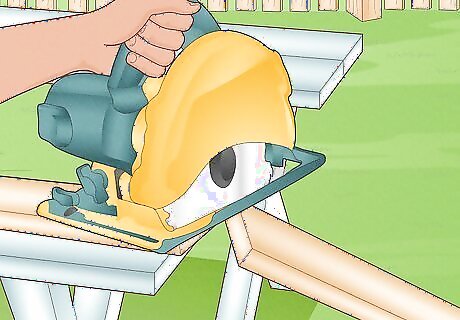
Cut the side rails and stiles to length. Again, you will need to figure out the length of the cuts through your own measuring, so that the finished door will sit properly in the opening. Allow for the stiles to be cut for tenons at each end. A 1 1/2 inch (3.8 cm) tenon on each end of the stile will need to be 3 inches (7.6 cm) longer than the finished length of the stile, less the width of the two rails. For a 40 inch (101.6 cm) door with 3 1/2 inch (8.9 cm) nominal rails, cut the stiles 36 inches (91.4 cm) long. This will allow for the tenon cuts on each end. For a 6 foot 8 inch (2 meters) tall door, the rails, of course, will be 6 foot 8 inches (2 meters).
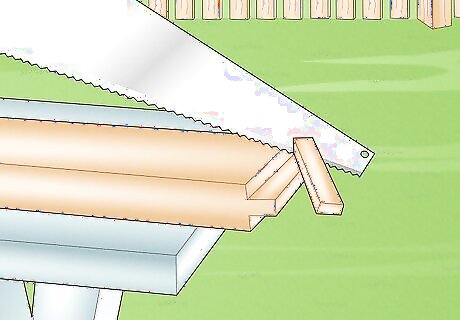
Cut the tenons on each end of each stile. You will need to divide the thickness of the stile by three, and leave the middle third as the tenon.
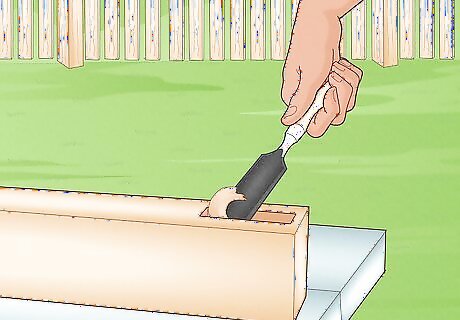
Cut the mortises for the stiles in each rail. For a normal door, you will want a top, middle, and bottom stile, so you need to cut a total of three mortises wide enough to fit the tenoned ends of each stile. Cut the mortises slightly deeper than the tenons; this will ensure that they will fit tightly and leave a clean joint.
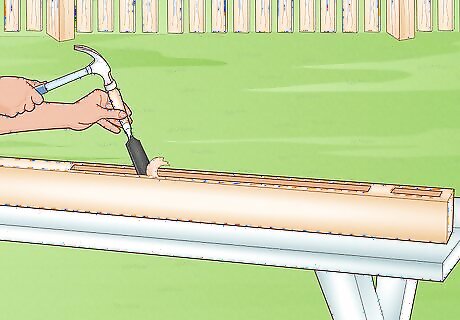
Mortise out the rails where panels or glass will be fitted to complete the door. This mortise will usually differ in width and depth from the stile mortise, in order to accommodate the different material. Any exterior material or siding can be used for the panels, as long as it is reasonably weatherproof and stable.
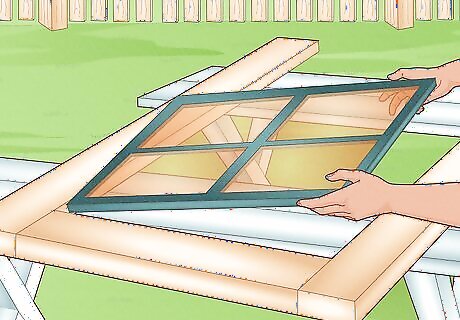
Fit the window you are using for the main panel of the door in position. Mark any notches or other modifications you need to make for it to sit properly in the door's frame.
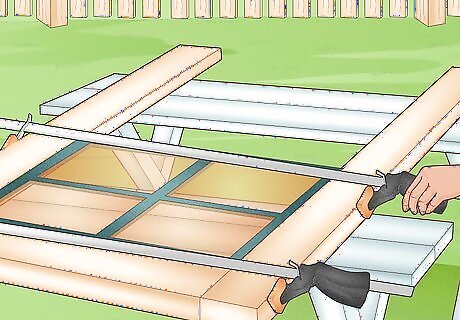
Clamp the rails so that they fit square along the edges of the window panel of your door. Leave clearance at the top for the top rail, then fit the top rail into position. Slide the intermediate rail up to the base of the window panel and check its fit. Check the assembly at this point to make sure it is square.
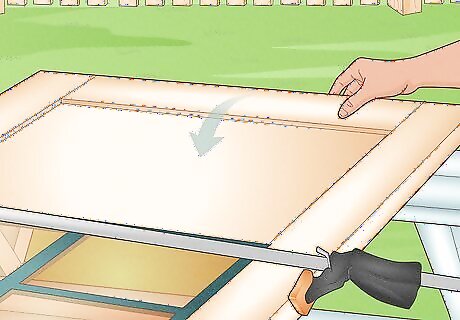
Cut and fit the bottom panel (treated 1/2 inch/1.3 cm) plywood in the photos), then install the bottom stile and check the overall dimensions of the door. Any oversized dimensions can be trimmed with a circular saw prior to installing the hinges, so don't worry if the finished door is a bit too large.
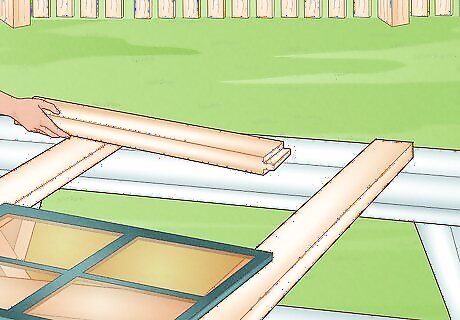
Disassemble the rails and stiles when you are sure everything fits correctly. Apply a liberal amount of quality, weatherproof wood glue to all the joints, being sure each side of each tenon gets sufficient glue on it to bond it in the mortise.
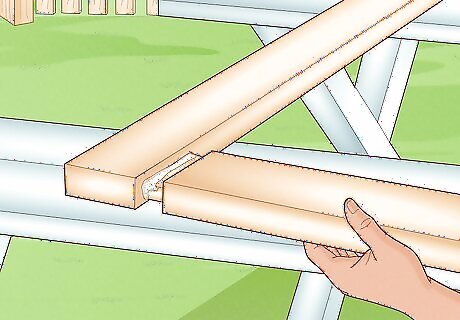
Reassemble the rails and stiles after you have applied the glue to the joints. Fit them tightly together, then clamp the frame to hold everything in position while the glue dries. Nails or screws can be used in each joint if the appearance is not important to you, and large wood screws can be used to reinforce the corners; however, this should not be done until any trimming of the finished door is completed.
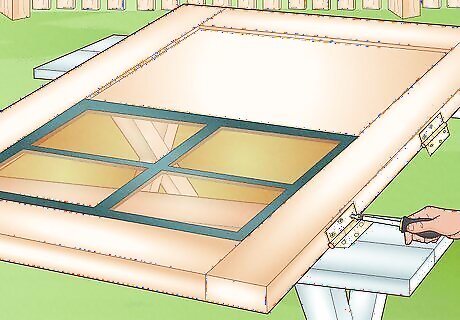
Install hinges on the door in preparation for hanging it. You may use standard door butt hinges, or flat surface hinges, depending on your preference. Hang the door, and complete its installation by installing door stops, a threshold, and a latch as you prefer.















Comments
0 comment